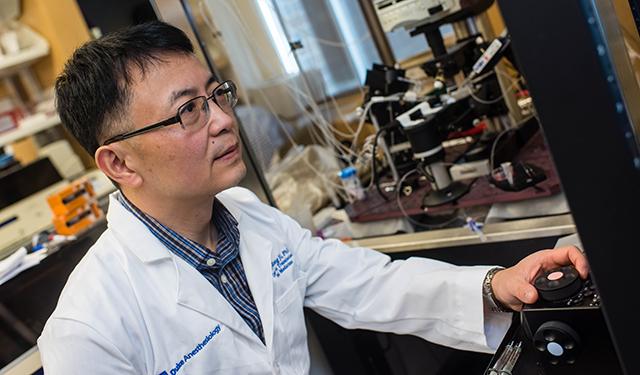
Duke Anesthesiology’s Ru-Rong Ji, PhD, William Maixner Professor of Anesthesiology, has once again been named among the most “Highly Cited Researchers” in the world.
Ji is one of 23 Duke scientists named to the 2024 list of 6,886 highly cited researchers. These pioneers represent the most influential researchers who have demonstrated significant and broad influence in their field(s) of research. Each researcher selected has authored multiple Highly Cited Papers, which rank in the top 1% by citations for their field(s) and publication year in the Web of Science over the past decade. The list is produced each year by Clarivate, which runs the Institute for Scientific Information.
“It is becoming much more competitive over the last seven years, as more scientists outside of the US are included in the list,” says Ji, director of both the Center for Translational Pain Medicine and the Sensory Plasticity and Pain Research Laboratory at Duke Anesthesiology, who has made this prestigious list since at least 2018. According to a Duke University article, researchers from 59 countries are included in this year's list. Approximately half of the highly cited scholars specialize in specific fields and half in ‘cross field,’ where interdisciplinary Duke typically excels. The United States remains the top-cited nation, accounting for 36 percent of global citations.
Ji joined Duke Anesthesiology faculty in 2012 and is one of the department's most distinguished faculty. His research career, ultimately spanning three continents, has focused on molecular and cellular mechanisms of chronic pain and the molecular basis of pain, including but not limited to the mediators and cells for the induction and resolution of inflammation and pain. Ji notably received the 2020 American Society of Anesthesiologists Excellence in Research Award. His work has significant translational potential in almost all areas of pain medicine. Ji is internationally-recognized for his contributions to demonstrating critical roles of MAP kinase and resolvin signaling pathways and neuroinflammation in the pathogenesis and resolution of chronic pain.